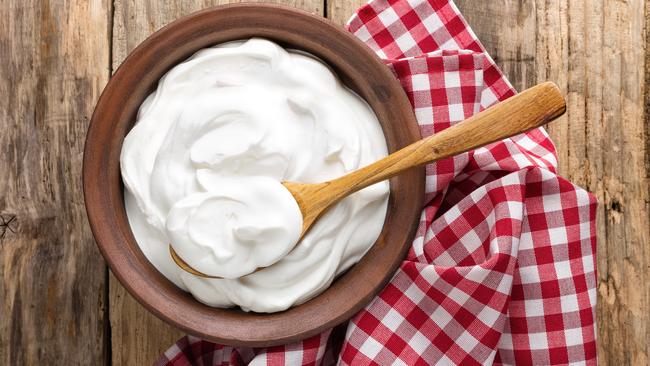The nine things you should eat every day to stay healthy
From nuts to apples, here are the easy-to-find foods that will deliver big benefits with just a single daily serving. But there’s one superfood that delivers the biggest gains.

Mashed avo on sourdough toast may no longer be the dining trend it was in the 2010s, but scientists have found that eating an avocado every day could be one of the best things for your health. In a new study published in the journal Current Developments in Nutrition, Kristina Petersen, associate professor of nutritional sciences at Penn State University, and a team of other scientists, reported that when 1,008 people were asked either to continue their usual diet with limited avocado intake or to start eating one avocado a day for the 26-week trial, it was the avocado-eaters who showed the biggest health gains.
Participants in the study all had excess belly fat – a waist measurement of 35 inches or more in women and 40 inches or more in men – suggesting that their regular diets were far from ideal. Yet those who added the daily avocado found they ate less processed, refined and high-salt foods, improving their overall diet quality often without realising it. “This suggests that strategies like eating one avocado a day can help people follow dietary guidelines and improve the quality of their diets,” Petersen says.
Meanwhile, nutritionists at the University of Illinois showed that women, but not men, who added an avocado to their daily diet could experience a reduction in visceral fat around their organs and a positive change in the distribution of belly fat over 12 weeks. And people who eat a daily avocado are more likely to have a more diverse microbiome, and high amounts of beneficial gut microbes that break down fibre and produce metabolites that further enhance gut health, say researchers at the University of Illinois.

Avocados have more potassium than bananas – 487mg in half a medium avocado versus 422mg in one medium banana – and this is “a mineral important for nerve health and for blood pressure control”, says the nutritionist Rhiannon Lambert. “But they also provide fibre and, while 77 per cent of the calories in an avocado come from fat, it is the monounsaturated variety which helps to raise good HDL cholesterol and lower bad LDL cholesterol.”
There are other foods that can bring significant health gains with a single daily serving.
An apple a day to protect your heart
Whether an apple a day will keep the doctor away is questionable, although one study of 8,000 adults published in JAMA Internal Medicine that looked at hospital and doctor appointments by apple-eaters and non-apple eaters did find that people who ate at least one a day were slightly less likely to visit a GP. There are definite benefits to making apples a daily habit, though. Many of the benefits are linked to pectin, the soluble dietary fibre that is found predominantly in the skin and core of apples.
“Pectin, also found in pears and plums, has been shown in studies, including a review in the journal Clinical Nutrition, to improve blood cholesterol levels,” says the registered nutritionist Rob Hobson, author of Unprocess Your Life. “That will help to reduce the risk of heart disease.”
Increase your wholegrains for heart and gut health
We should all be eating more wholegrains, such as quinoa, bulgur, rye, oats, spelt and buckwheat. These provide much of the fibre lacking from the UK diet and boost our health in a daily hit. “The bran and inner germ of wholegrains are packed with B vitamins, antioxidants and small amounts of healthy fats,” Lambert says. “Daily consumption of them is linked to better gut and heart health and the prevention of diabetes, cancers and obesity, yet 95 per cent of UK adults don’t eat enough.”
Consuming at least 50g of wholegrains – a slice of wholegrain or rye bread plus a dish of porridge – was shown to reduce the risk of type 2 diabetes by 34 per cent for men and 22 per cent for women compared with those with low intakes in a 15-year study of more than 55,000 people in the Journal of Nutrition. And researchers at Tufts University found that midlifers who ate at least three servings of wholegrains daily – one serving being a dish of porridge, a slice of wholemeal bread or a portion of brown rice or quinoa – had smaller increases in waist size, blood pressure and blood sugar levels than those who ate less than half a daily serving.
Drink a glass of milk to boost fertility and fight fatigue
A 200ml glass of cow’s milk provides 70mcg of iodine, half the recommended daily intake of 140mcg (it’s 200mcg a day for pregnant and breastfeeding women). “Iodine is essential for the production of thyroid hormones that regulate growth and maintain a healthy metabolism,” says Margaret Rayman, professor of nutritional medicine at the University of Surrey, who has studied iodine deficiency in the UK. “A shortfall of iodine in the diet can increase the risk of lethargy, fatigue, depression, fertility issues and problems with mental processing, and not all plant-based milks are fortified with the mineral.”
There are other benefits to a daily glass, provided that you don’t have a dairy intolerance. A 2021 review involving almost two million people in the UK and the US conducted by nutrition scientists including Vimal Karani, professor of nutrigenetics and nutrigenomics at the University of Reading, found that people who drank milk daily had lower levels of cholesterol and reduced their risk of heart disease by 14 per cent.

A portion of leafy greens can slow brain ageing
Leafy greens such as spinach, kale, cabbage and lettuce are considered a brain food staple because of the essential nutrients, including vitamin K, lutein and folate, and range of beneficial plant flavonoids they contain. They are also a source of nitrates, compounds that are converted by the body to nitrite, which relaxes and widens blood vessels to boost blood flow to the heart, brain and muscles.
Eating a daily serving was shown by nutritionists at Rush University in Chicago to slow age-related cognitive decline, with people who ate two or more servings typically displaying the memory and recall skills of someone 11 years younger. Last year a large study supported by the World Cancer Research Fund showed that a daily dose of leafy greens could help to cut the risk of bowel cancer by up to 7 per cent. Dr Linia Patel, a registered dietician, says that “green leafy veg can have a profound effect on general health and on heart health”. Researchers at Edith Cowan University’s Institute for Nutrition Research in Australia showed that a daily serving of leafy greens helped to “significantly reduce the risk of blood pressure and cardiovascular disease” in a study of nearly 3000 people.
A handful of nuts lowers the risk of respiratory disease and cancer
A team from Imperial College London and the Norwegian University of Science and Technology found that nut-eaters could cut their risk of heart disease by nearly 30 per cent, cancer by 15 per cent and premature death by 22 per cent. Published in the journal BMC Medicine, the review of 29 studies from around the world involving 819,000 people found that eating nuts daily cut the risk of dying from respiratory disease in half and from diabetes by almost 40 per cent. “Nuts are also rich in cholesterol-lowering fats and fibre as well as minerals that are linked to better heart health,” Lambert says. “Their nutrient profile varies, so have a good mix of raw and unsalted varieties.”
Add a teaspoon of olive oil to your food to live longer
This could reduce your risk of premature death from all causes by 12 per cent, according to findings reported in the Journal of the American College of Cardiology. Harvard nutritionists found that consuming a half a tablespoon (7g) daily resulted in a 29 per cent reduced risk of early death from neurodegenerative disorders such as Alzheimer’s disease and roughly a 19 per cent lower chance of dying from cardiovascular disease than those who rarely or never used olive oil. Its benefits stem from the fact it comprises predominantly monounsaturated fatty acids including oleic acid, which reduces inflammation in the body and improves cholesterol levels.
“Olive oil is a great addition to the diet with its monounsaturated fatty acids known to be beneficial for boosting good HDL cholesterol levels,” Lambert says. “The extra virgin variety is higher in beneficial antioxidant polyphenols, but any type of olive oil is a better choice than saturated fats.”

Take a multivitamin to maintain your memory
Our bodies become less adept at absorbing nutrients as we get older. Taking a daily multivitamin could help to make up any shortfalls while also bringing other benefits. Duane Mellor, a senior teaching fellow at the Aston Medical School in Birmingham, says that “older adults do tend to need relatively more B12, calcium and vitamin D” than younger people, and a study in the journal Nutrients showed that taking a multivitamin helped to support immune function in people aged 55-plus. It could also preserve memory. Another study, involving almost 3,500 healthy adults aged 60 or over, showed that those taking a multivitamin for three years had significantly enhanced memory function compared with participants given a placebo.
A dollop of yoghurt can help blood pressure and blood sugar control
Yoghurt is crammed with “good” bacteria needed to keep the gut healthy. Meanwhile the calcium, magnesium and fatty acids in yoghurt are thought to help to lower the risk of type 2 diabetes. Harvard scientists reported that a single 28g serving of yoghurt a day was associated with an 18 per cent lower risk of type 2 diabetes. The nutrients in yoghurt, including calcium, magnesium and potassium, are also known to be involved in the regulation of blood pressure and a daily serving was shown to lower it in people with hypertension, according to a study from the US and Australia. The scientists behind the trial also suggested that bacteria in yoghurt helps to promote the release of proteins that lower blood pressure. Just make sure you avoid the ultra-processed varieties. “Opt for plain milk yoghurt, with nothing else added to it, for the biggest benefits,” Lambert says.
The Times





To join the conversation, please log in. Don't have an account? Register
Join the conversation, you are commenting as Logout